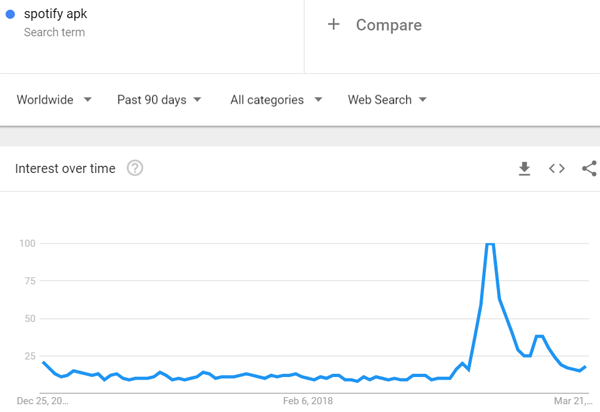EU Content Rules to Improve Access & Reduce Piracy Start April 1
mercredi 28 mars 2018 à 10:07 Any subscriber of a service like Netflix will tell you that where you live can have a big impact on the content made available. Customers in the US enjoy large libraries while less populous countries are treated less well.
Any subscriber of a service like Netflix will tell you that where you live can have a big impact on the content made available. Customers in the US enjoy large libraries while less populous countries are treated less well.
For many years and before Netflix largely closed the loophole, customers would bypass these restrictions, using VPNs to trick Netflix into thinking they were elsewhere. Some wouldn’t bother with the complication, choosing to pirate content instead.
But for citizens of the EU, things were even more complex. While the EU mandates free movement of people, the same can’t be said about licensing deals. While a viewer in the Netherlands could begin watching a movie at home, he could travel to France for a weekend break only to find that the content he paid for is not available, or only in French.
Last May, this problem was addressed by the European Parliament with an agreement to introduce new ‘Cross-border portability’ rules that will give citizens the freedom to enjoy their media wherever they are in the EU, without having to resort to piracy or VPNs – if they can find one that still works for any length of time with the service.
Now, almost 11 months on, the rules are about to come into force. From Sunday, content portability in the EU will become a reality.
“Citizens are at the core of all our digital initiatives. As of 1 April, wherever you are traveling to in the EU, you will no longer miss out on your favorite films, TV series, sports broadcasts, games or e-books, that you have digitally subscribed to at home,” European Commission Vice-President Andrus Ansip said in a statement.
“Removing the boundaries that prevented Europeans from traveling with digital media and content subscriptions is yet another success of the Digital Single Market for our citizens, following the effective abolition of roaming charges that consumers all over Europe have enjoyed since June 2017.”
This is how it will work. Consumers in the EU who buy or subscribe to films, sports broadcasts, music, e-books or games in their home Member States will now be able to access this content when they reside temporarily in another EU country.
So, if a person in the UK purchases Netflix to gain access to a TV show to watch in their home country, Netflix will have to add this content to the customer’s library so they can still access it wherever they travel in the EU, regardless of its general availability elsewhere.
“[P]roviders of paid-for online content services (such as online movie, TV or music streaming services) have to provide their subscribers with the same service wherever the subscriber is in the EU,” the Commission explains.
“The service needs to be provided in the same way in other Member States, as in the Member State of residence. So for Netflix for example, you will have access to the same selection (or catalog) anywhere in the EU, if you are temporarily abroad, just as if you were at home.”
The same should hold true for all other digital content. If it’s available at home, it must be made available elsewhere in Europe in order to comply with the regulations. In doing so, providers are allowed some freedom, provided it’s in the customer’s favor. If they want to give customers additional access to full home and overseas catalogs when they’re traveling, for example, that is fine.
There’s also a plus in there for content providers. While a company like Netflix will sometimes acquire rights on a per country basis, when a citizen travels abroad within the EU they will not be required to obtain licenses for those other territories where their subscribers stay temporarily.
There is, however, a question of what “temporarily” means since it’s not tightly defined in the regulations. The term will cover business trips and holidays, for example, but providers will be required to clearly inform their customers of their precise terms and conditions.
Providers will also need to determine a customer’s home country, something that will be established when a customer signs up or renews his contract. This can be achieved in a number of ways, including via payment details, a contract for an Internet or telephone connection, verifying a home address, or using a simple IP address check.
For providers of free online services, which are allowed to choose whether they want to be included in the new rules or not, there are special conditions in place.
“Once they opt-in and allow portability under the Regulation, all rules will apply to them in the same manner as for the paid services. This means that the subscribers will have to log-in to be able to access and use content when temporarily abroad, and service providers will have to verify the Member State of residence of the subscriber,” the Commission explains.
“If providers of free of charge online content services decide to make use of the new portability rules, they are required to inform their subscribers about this decision prior to providing the service. Such information could, for example, be announced on the providers’ websites.”
The good news for consumers is that providers will not be able to charge for offering content portability and if they don’t provide it as required, they’ll be in breach of EU rules. The EU believes that all providers are ready to meet the standard – the public will find out on Sunday.
The new rules can be found here (pdf)
Source: TF, for the latest info on copyright, file-sharing, torrent sites and more. We also have VPN reviews, discounts, offers and coupons.



 Last summer Cloudflare CEO Matthew Prince decided to
Last summer Cloudflare CEO Matthew Prince decided to 
 It is now common knowledge that Spotify launched its service more than a decade ago with the aim of attracting pirates.
It is now common knowledge that Spotify launched its service more than a decade ago with the aim of attracting pirates.
 Following the Megaupload
Following the Megaupload 